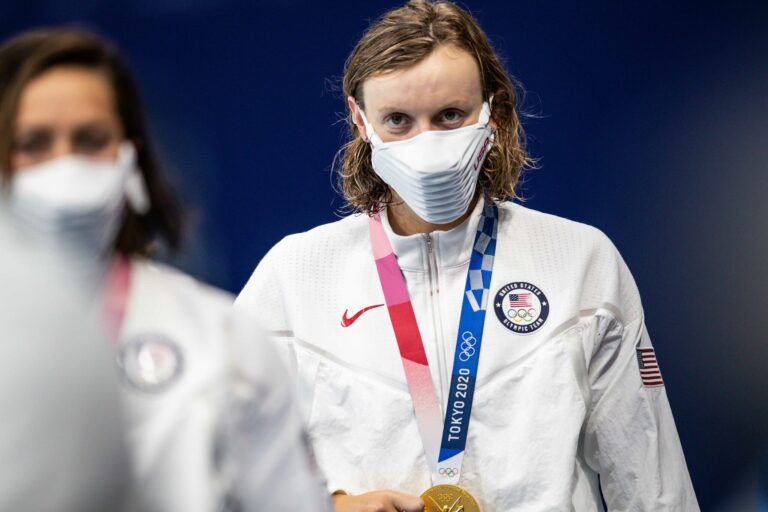Although there are no official prize money offered by World Aquatics or the International Olympic Committee for the 2024 Summer Olympics in Paris, there are still big financial rewards at stake.
Aside from the countless indirect career and sponsorship opportunities that come with winning a gold medal, some countries offer prize money (such as the famous SGD1 million awarded to Joseph Schooling in Singapore in 2016) and others offer intangible rewards, such as a military service deferral in South Korea.
There is no direct prize money for success in Olympic swimming — World Athletics drew attention and ire from its peers by offering $2.4 million in prize money in Paris — but American swimmers can take advantage of its “Operation Gold” program.
The program awards prize money to medalists at Olympic Games (and major international competitions in non-Olympic years) that is largely exempt from NCAA rules, which still prohibit athletes from receiving prize money for their athletic achievements.
Previously, there were two Operation Gold pools available for USA swimmers to participate in: one from the USOPC and one from USA Swimming.
USOPC Operation Gold Money
- 1st place – $37,500
- 2nd place – $22,500
- 3rd place – $15,000
The prize money will remain unchanged from the 2020 Tokyo Olympics.
During the recent Beijing Olympics, those payments totaled $5.6 million.
USA Swimming provided Operation Gold prize money at the 2016 Olympics, but does not provide information about the Operation Gold program on its website. A USA Swimming spokesperson did not respond to a request for more information about the USA Swimming Operation Gold program.
Coach Incentives
USA Swimming offers a Coach Incentive Program that distributes funds to coaches of individual (American) Olympic medalists in pool and open water.
USA Swimming doesn’t define how much money will be available in this prize pool, but it does make public who is eligible for prize money.
A. Head Coach:
A coach who was coaching the athlete at the time they won a medal in an Operation Gold competition. A coach must have coached the athlete for at least 90 consecutive days within the 24-month period prior to winning a medal in an Operation Gold competition.B. College Coach:
Head coaches of college programs who coached athletes while in college. (College coaches cannot receive credit twice if they are the primary coach. To receive college coaching credit, a college coach must have coached an athlete at college for two seasons at the time they won a medal in Operation Gold competition.)C. Developmental Coach:
Coaches who provided the training foundation for at least 24 consecutive months during these athletes’ “critical developmental years” (ages 11-18).D. Post-Developmental Coach:
Coaches who have coached an athlete for at least 24 consecutive months since age 18.
Lead coaches will receive four shares for winning a gold medal, two shares for winning a silver medal and one share for winning a bronze medal, with additional funding available to coaches who have coached athletes for five or more consecutive years during their coaching career.
The dollars available are divided by the total number of shares to determine the value of each share.



